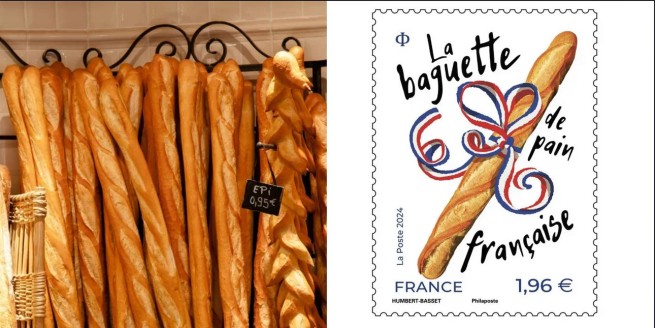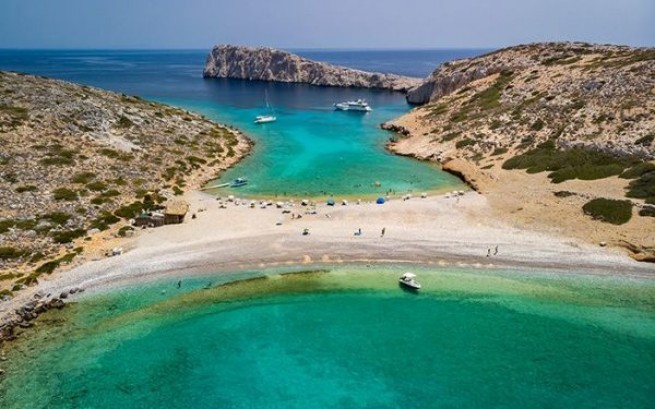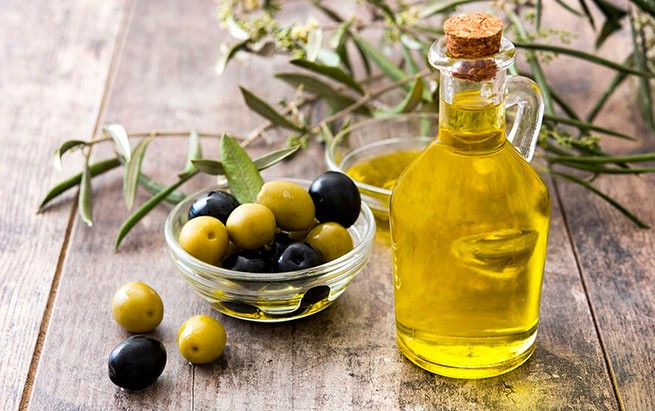Although in Russian the term does not lend itself to an unambiguous interpretation, in English the term “oil crisis”, which dominates the markets, has a double meaning: on the one hand, it characterizes the oil crisis, and on the other, a large-scale crisis in the world olive oil market…
By comparison, olive oil is currently more expensive than crude oil (the price of crude oil is currently less than a tenth the price of olive oil).
Extreme heat, fires and drought have once again destroyed much of the world’s olive harvest, pushing olive oil prices to historic highs, straining household budgets and local economies, and changing the food map, especially in Mediterranean countries.
Drought and water shortages in recent months in Spain are raising concerns for the new season, Rabobank said in a recent agriculture report. And in recent weeks, hurricanes have hit Puglia, Italy’s most important olive oil producing region, damaging the upcoming harvest. Italy ranks second in the world in olive oil production. Similar news is coming from other major Mediterranean producers: crops in Portugal, Tunisia, Morocco and Greece have been affected by drought.
https://rua.gr/news/bissecon/57201-tsena-na-olivkovoe-maslo-bet-vse-rekordy-eksport-uvelichilsya-bolee-chem-vdvoe.html
Bans in Turkey
Turkey, having reaped a good harvest, has decided to extend an initial three-month ban on olive oil exports indefinitely. The ban, which does not apply to the export of packaged and bottled olive oil, but only applies to bulk and barrel olive oil, was extended in order to stabilize prices.
In 2022-2023 Low yields in the world’s leading oilseed producing countries, caused by climate change, have led to increased demand for olives and olive oil from Turkey from foreign producers.
“Given the decline in production in our country due to unfavorable climatic conditions during the flowering period of olive trees, the fact that there will be no reduction in prices in the world, and external demand is growing, it became necessary to extend the measure applied to the export of bulk and barrel olive oil.” , the Turkish Ministry of Trade said in a written statement.
Assessing the ban, Chairman of the Akhisar Commodity Exchange Alper Alhat said that it takes some time to assess supply and demand. “Before the export ban came into force, the price of olive oil was 180 Turkish liras, and now it exceeds 200 liras,” he said. “We should see the exact volumes in the new season. But it is not in Turkey’s hands to reduce the price of olive oil. For “In the last 12 months, olive oil prices in Spain have increased by 100%. There is an opportunity in packaged olive oil. And Turkey should take advantage of it.”
https://rua.gr/news/bissecon/56863-tsena-na-olivkovoe-maslo-vyrastet-do-10-evro-za-kilogramm.html
Morocco
Morocco’s Ministry of Agriculture also approved a decree banning the export of olive oil to curb rising prices on the domestic market. This makes Morocco the third major olive oil producing country after Turkey and Syria to impose an export ban. Currently, a liter of olive oil in the country sells for between 11 and 14 euros, some 64% higher than the average price in August 2022. The average monthly salary in Morocco after taxes is around 360 euros.
Rachid Benali, president of the Moroccan Olive Interprofessional, said the measure aims “to protect the purchasing power of Moroccan consumers.” Despite last year’s poor harvest, largely caused by drought, Morocco remains Africa’s second-largest olive oil producer and exporter after Tunisia. According to the International Olive Oil Council, in the 2022/23 agricultural year the country produced 156 thousand tons of olive oil and exported 28 thousand tons.
https://rua.gr/news/bissecon/55090-tsena-na-olivkovoe-maslo-v-nyneshnem-sezone-podnimetsya-v-razy.html
Representatives of the Ministry of Agriculture explain the rise in prices for olive oil in the country by its shortage throughout the Mediterranean. While officials are seeking to reduce prices domestically, Morocco’s decision to ban exports could push prices up further in Europe.
In the first seven months of 2023, about 3% of the country’s total olive oil imports came from Morocco, 11% from Turkey and 2.5% from Syria, according to Spain’s Ministry of Industry, Trade and Tourism.







More Stories
Eurostat: inflation in Greece was 3.2% in April, in the eurozone – 2.4%
Electric buses in Athens: the first 46 are already on route
Office rental… hourly